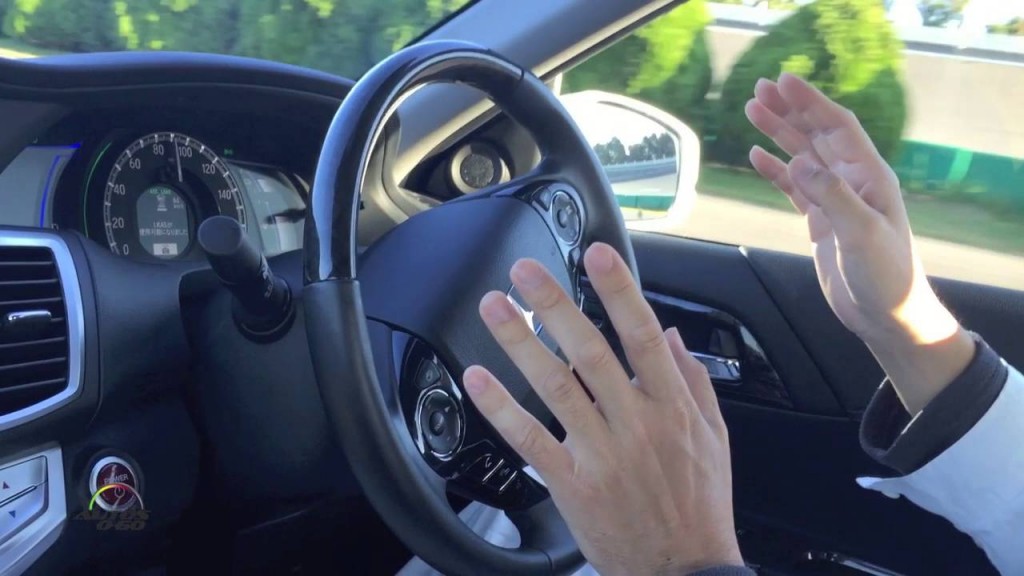Driverless cars aren’t ubiquitous yet, but according to a study by McKinsey & Co., in fifteen years we’ll be seeing them everywhere.
Both McKinsey and marketing expert Mark Schaefer say that driverless cars will herald a golden age of an increasing amount of content.
Because we won’t be bothered by avoiding crazy drivers on the roads, each of us will gain 50 minutes a day of time we can spend Facebooking, watching movies, or consuming books, magazines or other online content.
By that time, virtual reality will be a reality, so maybe we’ll just be sitting in our driverless cars watching the Hawaiian coastline sail by as we head in to work.
Or maybe we won’t even need to commute into an office – those virtual reality headsets will allow us to work together no matter where we are.
Besides the lack of a commute, what does this kind of virtual future look like for us in prospect development?
This is something that my colleague, Angie Stapleton, and I have been thinking about for many, many weeks now. We’re preparing for a workshop presentation on advanced search techniques at the APRA international conference next month, and part of our talk will be on the future of search.
We’re finding some exciting – and some concerning – predictions and perspectives on where search engines are headed from the experts we’re tapping into.
For example, in his TEDxMünchen talk, The Future of Search, SEO expert Marcus Tandler gives a short historical overview of the evolution of search to set the stage. He, too, talks about driverless cars, because Google is one of the companies building them.
Google Drive
But it’s the integration of Google into our daily lives that fascinates Tandler: for example, Google’s purchase of Waze and other apps will help personalize a driver’s experience on the road. Is it nearly lunchtime? Google is the platform enabling Waze to communicate with your Chipotle app to find and drive you to their nearest restaurant because it sees that Chipotle just provided you with a better coupon than your Taco Bell app did.
 And while you’re gliding along munching your chalupa, slip your Android phone into your Google Cardboard and watch the waves hit the shore on Maui.
And while you’re gliding along munching your chalupa, slip your Android phone into your Google Cardboard and watch the waves hit the shore on Maui.
So is Google still a search company? Or is their overwhelming financial success (built on search) now just a platform for other avenues where search can be integrated?
In his fascinating SMX West Keynote this year, The Future of Search, Google’s director of conversational search Beshad Behzadi imagines a very-near future when we will primarily interact with our devices with the spoken word. In an overt nod to the movie Her, in which a lonely writer develops a relationship with his phone’s operating system, Behzadi provided a live demo of futuristic features available right now, and talks about what lies ahead for Google’s design teams.
And the future is clearly mobile. Mobile searching passed desktop searching two years ago, according to Google’s former search chief Amit Singhal. And 77% of the time a person uses a smartphone to go on the web, they’re heading to a search engine. Most of the time, no matter where in the world they live, the searcher is heading to Google.
In an article recapping and discussing Behzadi’s keynote, Search Engine Land columnist Eric Enge says that this future where we interact seamlessly with our devices – asking deep questions and being delivered intuitive, personalized, results – isn’t that far off. Google clearly thinks so – Amit Singhal’s replacement as search chief is John Giannandrea, an artificial intelligence expert.
Does this mean the death of the search box?
For those of us who research professionally, we know that the questions we ask a search engine are much deeper than “where is the closest Mexican restaurant?” We don’t need help making reservations, or to know who won the World Cup in 2005.
Search, for us, isn’t location-specific, and we don’t need it personalized. We need to be able to dive into a clear lake and see all of our choices. In some cases, information may be hidden under a rock – we need to be able to turn each one over ourselves.
As Eric Enge points out, some searches may just be too personal for people to say out loud, so maybe some sort of typed interface will always be with us. But will it be on Google?
If you were Google, which has to satisfy its shareholders and the largest proportion of its customers, would you continue to put R & D money into a resource that only a small percentage of your customer base uses? Would you continue to fill your growing – and expensive – data warehouses with resources that few access?
I wonder.
What do you think the future for search professionals looks like?

